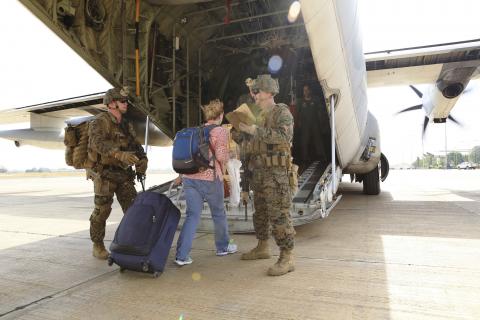Advertisement
South Sudanese Rebels To Hold Direct Talks With Government
ADDIS ABABA (Reuters) - South Sudanese rebels will hold their first face-to-face talks with the government on Saturday in a bid to end weeks of bloodletting that have raised fears of a slide into civil war in Africa's newest state, Ethiopia's foreign minister said.
The talks in South Sudan's neighbor Ethiopia made a slow start on Friday after days of delay, with both sides meeting mediators from the regional IGAD grouping but not each other.
But further clashes between President Salva Kiir's SPLA government forces and rebels loyal to former vice president Riek Machar on Friday suggested the ceasefire demanded by bordering nations was still a long way off.
"We've successfully finished the proxy talks," Ethiopian Foreign Minister Tedros Adhanom said late on Friday. "We will proceed to holding face-to-face discussions tomorrow (Saturday)."
South Sudan's neighbors fear the fighting, which rapidly spread from the capital last month along ethnic faultlines, could destabilize East Africa and international pressure is mounting for a deal.
More than a thousand people have been killed and 200,000 driven from their homes in three weeks of fighting that has also rattled oil markets.
South Sudan remains one of the continent's least developed countries for all its crude reserves, estimated by BP to be sub-Saharan Africa's third largest.
In a sign of deteriorating security, the United States on Friday ordered more its staff out of South Sudan, which only won its independence from Sudan two years ago in a peace deal that ended one of Africa's longest civil wars.
Washington also ordered all U.S. citizens to leave. More than 440 U.S. officials and private citizens have now been evacuated on charter flights and military aircraft, the State Department said.
Kiir has accused his long-term political rival Machar, whom he sacked in July, of starting the fighting in a bid to seize power. Kiir is from the country's Dinka group while Machar is a Nuer.
Machar denies the claim but he has acknowledged leading soldiers battling the government. He says the president has been purging political opponents within the ruling SPLM party ahead of elections next year.
The negotiations in Ethiopia are meant to focus on when a ceasefire should begin and how it should be monitored. Both the SPLA and rebels have said they intend to put down their weapons.
(Writing by Richard Lough; Editing by Andrew Heavens)



















Add new comment